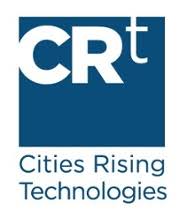 A consortium of some of technology’s brightest minds has been assembled to share critical data to address Lake St. Clair’s environmental challenges. The goal of this initiative is to develop a systematic approach to addressing lake issues, while creating the tools to provide a better understanding of lake dynamics and the land-water interface at the watershed scale.
A consortium of some of technology’s brightest minds has been assembled to share critical data to address Lake St. Clair’s environmental challenges. The goal of this initiative is to develop a systematic approach to addressing lake issues, while creating the tools to provide a better understanding of lake dynamics and the land-water interface at the watershed scale.
Dubbed the Lake St. Clair SMART Water Initiative, the consortium is led by startup CitiesRising Technologies and includes the Michigan Office of the Great Lakes, the Institute of Water Research at Michigan State University, the Aspen Institute, Nicolas Institute for Environmental Policy Decisions at Duke University, Microsoft and ESRI.
The consortium is creating an Internet of Water framework to capture, curate and expose relevant data and information. They will use a combination of sensors, data, and visualization technologies to track changes in the water throughout the Great lakes region. This information will be shared with all so decision making can take place quickly throughout the network.
“The Lake St. Clair ‘SMART Lake Initiative’ will put data to work to create tomorrow’s solutions and continue progress in increasing stewardship of our water resources,” said Jon W. Allan, Director of the Michigan Office of the Great Lakes. “Collaboration, connectivity, and technology are key drivers in our work to sustainably manage the world’s largest freshwater system, the Great Lakes.”
“We decided to begin with one of the state’s most talked-about bodies of water, Lake St. Clair,” said Alicia Douglas, CEO, CitiesRising Technologies.
“We are not providing a silver bullet, but are assembling the brightest minds to tackle existing and growing problems in the environment,” added Douglas. “Changing conditions, both natural and anthropogenic, and regulation relaxation are creating additional stressors in our environment and on our water systems. Our initiative will aid and inform local decision making and state-supported management actions.”
David Totman, Global Water Industry Manager for ESRI said: “The key to bridging the WHAT, WHY, and HOW from many disparate data resources is by understanding the WHERE that gives them a common context. ESRI is proud to provide the deep geographic insights into The Science of Where at the foundation of the Lake St. Clair effort.”
The inception of “Internet of Water” comes from a recently published report, Internet of Water: Sharing and Integrating Water Data for Sustainability, that provides a blueprint for how to design and launch a feasible and interoperable network that will enable connecting and transmitting water-related data and information in real-time. Connecting water data from across the U.S. will improve how water resources are being managed and address prevalent water problems such as extreme flooding, scarcity, contamination, and restoring aquatic systems.
“The Lake St. Clair initiative brings together a unique partnership to combine innovative technologies and data to better understand and manage our water resources in real-time,” said Jeremiah Asher, assistant director of MSU’s Institute of Water Research. “Applying science and technology to solve the world’s greatest water challenges is one of our core goals.”
On November 16, 2017, the Aspen and Nicholas Institutes will lead a roundtable discussion on the vision and principles of an “Internet of Water” that they believe will aid local water data, industry and policy experts to position Lake St. Clair as a successful example of a regional data sharing community that uses shared and integrated water data to alleviate water management issues in Macomb County, Oakland County, and surrounding areas.
In addition, CitiesRising Technologies will host roundtables and forums around the Great Lakes to build trust and enable citizen participation. The first major forum in slated for Cobo Center in Detroit on September 24-26, 2018.
Source: CitiesRising Technologies



